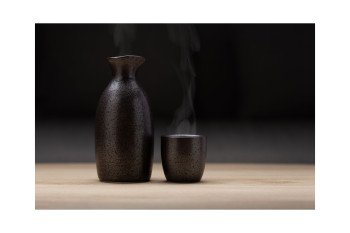Quartz silica powder, a versatile and essential industrial material, is garnering attention across various industries for its remarkable properties and applications. Derived from the mineral quartz, it plays a crucial role in modern manufacturing, thanks to its purity, hardness, and chemical inertness. In this comprehensive guide, we will unravel the mysteries of quartz silica powder, exploring its origins, properties, applications, and significance in diverse sectors.
Understanding Quartz Silica Powder
1. Origin and Composition
Quartz, the second most abundant mineral on Earth's crust, primarily consists of silicon dioxide (SiO2). Quartz silica powder is derived by finely grinding and processing quartz crystals or silica-rich rocks, resulting in a finely powdered, amorphous form of silicon dioxide.
2. Physical and Chemical Properties
- Purity: Quartz silica powder is known for its high purity, often exceeding 99.9%, making it a preferred choice in applications requiring low impurity levels.
- Hardness: Quartz silica is one of the hardest minerals, ranking at 7 on the Mohs scale of hardness, making it ideal for various abrasive applications.
- Chemical Inertness: Its inert nature renders it resistant to chemical reactions, making it valuable in industries where corrosive environments are prevalent.
Applications of Quartz Silica Powder
1. Glass and Ceramics
Quartz silica powder is a fundamental component in the production of glass and ceramics. Its high melting point and chemical stability contribute to the clarity, strength, and durability of glass products. Moreover, it's an essential ingredient in ceramics, enhancing their thermal and mechanical properties.
2. Construction and Concrete
In the construction industry, quartz silica powder is employed in concrete to improve its strength, density, and durability. Its fine particles fill voids in the concrete matrix, resulting in a denser and more resilient material.
3. Foundry and Metallurgy
Foundries utilize quartz silica powder as a mold and core sand in metal casting processes. The high heat resistance and low thermal expansion properties make it a preferred choice. Additionally, it's used as a flux in metallurgical operations to enhance the efficiency of metal smelting.
4. Oil and Gas Industry
In the oil and gas industry, quartz silica powder is employed in hydraulic fracturing (fracking) to enhance permeability in the reservoir and facilitate oil and gas extraction.
5. Electronics and Semiconductors
Quartz silica powder is crucial in the manufacturing of semiconductors and electronics. Its high purity and thermal stability make it a reliable material for fabricating silicon wafers, transistors, and other electronic components.
Significance and Future Prospects
As industries continue to advance and demand for specialized materials grows, the importance of quartz silica powder is only expected to increase. Its unique combination of properties and versatility in various applications make it a valuable asset in the industrial landscape.
1. Sustainability and Environmental Benefits
Quartz silica powder's eco-friendly nature, recyclability, and abundance make it a sustainable choice for industries aiming to reduce their environmental footprint and promote sustainable manufacturing practices.
2. Research and Innovation
Ongoing research and technological advancements are likely to uncover new applications and methods to enhance the properties of quartz silica powder, further broadening its range of uses and boosting the efficiency and effectiveness of numerous industrial processes.
In conclusion, quartz silica powder is an indispensable material that has revolutionized various industries due to its unique properties and versatility. From everyday consumer products to cutting-edge technologies, this fine powder continues to shape our modern world, highlighting its importance and potential in the years to come.











